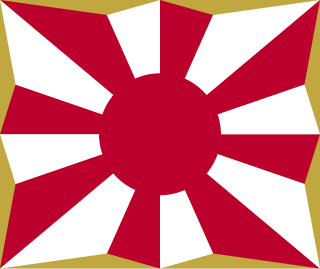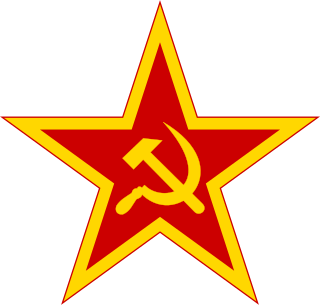 W
WThis is a list of military equipment used by the Bolivian Armed Forces.
 W
WModern equipment of the Armenian Armed Forces. All effort is done to keep the tables up-to-date with reliable information available on open sources. The information is updated regularly. This page might contain equipment which are in use with the Artsakh Defense Army, as the equipment is sometimes used by both armies, but will officially contain information pertinent only to the Armenian military.
 W
WThe Azerbaijani Air Forces use mainly Soviet-made combat aircraft. However, most of the aircraft have been modernized and equipped with modern avionics. Currently, Azerbaijan is holding talks with several countries, including Pakistan and Russia, to purchase new-generation aircraft, but so far any aircraft purchase agreement had not signed. The Azerbaijani side is particularly interested in purchasing Sukhoi Su-35 and Mikoyan MiG-35 aircraft from Russia and CAC/PAC JF-17 Thunder aircraft from Pakistan.
 W
WThis is a list of equipment used by the Azerbaijani Land Forces.
 W
WThis is a list of the equipment currently in use in the Bangladesh Army. It includes small arms, vehicles, artillery, and aircraft.
 W
WBangladesh Coast Guard currently operates 47 surface ships and craft. Most of them are small coastal patrol vessels. The coast guard ships use the prefix "CGS" before the name of the ships which stands for "Coast Guard Ship".
 W
WThis is a list of equipment of the British Army currently in use. It includes small arms, combat vehicles, aircraft, watercraft, artillery and transport vehicles. The British Army is the principal land warfare force of the United Kingdom, a part of British Armed Forces. Since the end of the Cold War, the British Army has been deployed to a number of conflict zones, often as part of an expeditionary force, a coalition force or part of a United Nations peacekeeping operation.
 W
WThis is a list of communications and reconnaissance equipment in use with the British Army. For more equipment in use with the British Army, see Modern equipment of the British Army.
 W
WThe Cypriot National Guard is a combined arms force and represents the organised air, land and sea capabilities of the Republic of Cyprus. Equipment has in the past, and usually still is, imported from other countries, since the country has only very limited heavy industrial and commercial industrial capacity due to its small population and land mass. The role of maintaining, upgrading and modifying military equipment is primarily the task of the National Guard Technical Corps, though more complex activities rely upon the availability of civil contracts.
 W
WModern equipment of the French Army is a list of equipment currently in service with the French Army. Figures are provided by the French Ministry of Defense for 2018.
 W
WHere is the following list of the modern equipment in the Georgian Defence Forces:
 W
WList of Gulf War Military Equipment is a summary of the various military weapons and vehicles used by the different nations during the Gulf War of 1990–1991.
 W
WThis is a partial list of the modern equipment of the Irish Army, the land component of the Irish Defence Forces.
 W
WThe military equipment of Israel includes a wide array of arms, armored vehicles, artillery, missiles, planes, helicopters, and warships. Many of these are purchased overseas and many are indigenous designs. Until the Six-Day War of 1967, the Israel Defense Forces' principal supplier was France; since then, it has been the United States government and defense companies. In the early 21st century, Israeli companies such as Soltam Systems began selling arms to the United States. Much of the military equipment undergoes improvements in Israeli workshops. In addition to weapons purchased overseas and indigenous products, Israel also operates and maintains large stockpiles of Soviet-made equipment captured from Arab armies over the course of the Arab–Israeli conflict.
 W
WThe following is a list of equipment currently in service with the Japan Ground Self-Defense Force.
 W
WThis is a list of the equipment used by the Comorian Army.
 W
WThis is a list of the military equipment used by the Royal Bhutan Army. The RBA is a mobile infantry force lightly armed with weapons largely supplied by India.
 W
WThis is a list of equipment used by the Myanmar Army.
 W
WThe following is a list of equipment in the Republic of Union of Myanmar Navy. It may not be up-to-date or complete.
 W
WThe following is a list of active equipment of the Pakistan Army.
 W
WThis is a list of bridging and trackway equipment used by the Royal Engineers of the British Army. For more equipment in use with the Royal Engineers, see Modern equipment of the British Army.
 W
WThis is a list of equipment of the Russian Ground Forces currently in service.
 W
WThis list shows equipment of Soviet Army in 1990.
 W
WThis article is a list of equipment of the Royal Thai Army.
 W
WThis article is the list of equipment of the Royal Thai Navy, including active and historic equipments. The equipment of the Royal Thai Navy have been produced in many different countries, such as Canada, China, Germany, Italy, Japan, Netherlands, Singapore, South Korea, Spain, United States, and the United Kingdom.
 W
WThe list of equipment of the Ukrainian Ground Forces can be subdivided into: infantry weapons, vehicles, aircraft, watercraft, and clothing.
 W
WThe Equipment of the United States Navy have been subdivided into: watercraft, aircraft, munitions, vehicles, and small arms.
 W
WDuring the First Indochina War, Vietnam War (1955–1975), Cambodian–Vietnamese War (1977–1989), Sino-Vietnamese War (1979) and the Sino-Vietnamese conflicts 1979– 1991 (1979–1991), the Vietnam People's Ground Force relied almost entirely on Soviet-derived weapons and equipment systems. With the end of the Cold War in 1992 Soviet military equipment subsidies ended and Vietnam began the use of hard currency and barter to buy weapons and equipment.
 W
WSince the Vietnam War, most of Vietnamese vessels were supplied by the Soviet Union and presently by Russia, while hundreds more were integrated into the navy after it was left over from South Vietnam although many have been decommissioned due to lack of parts. However, due to rising tensions in the South China Sea, many nearby nations such as Japan have shown support in developing Vietnam's Navy and Coast Guard.
 W
WSince the Vietnam War, most Vietnamese aircraft were supplied by the Soviet Union and later Russia, while hundreds of others were left by the United States via South Vietnam. Most of these are no longer in service either due to the unavailability of parts or the age of the aircraft.